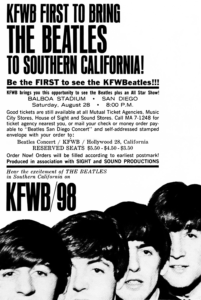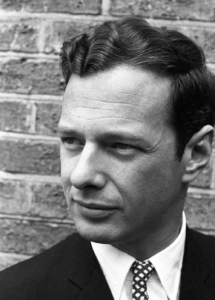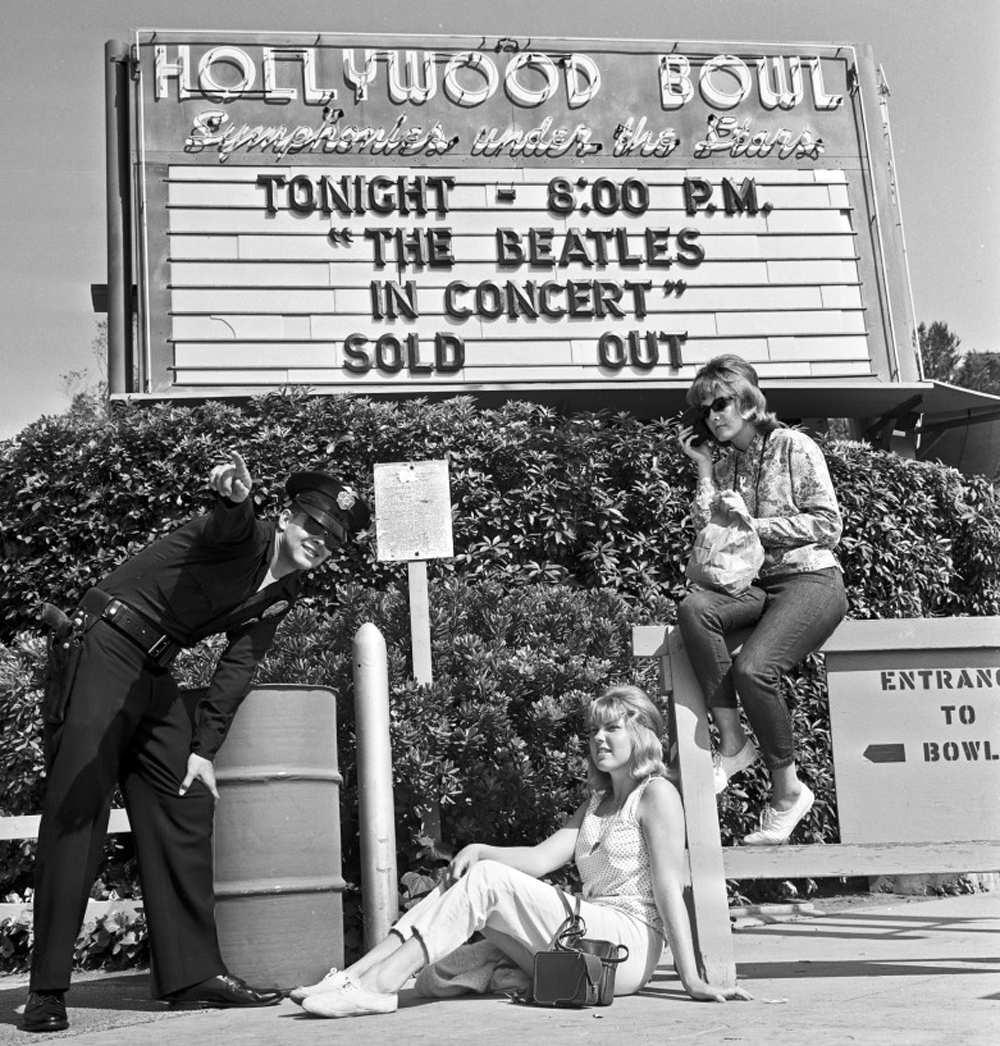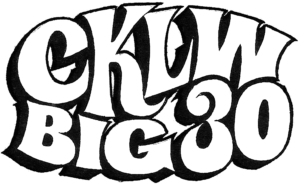 DJ of the Week: WHYT’s Rick Gillette
DJ of the Week: WHYT’s Rick Gillette
UNTIL RECENTLY, the bus cards for WHYT “Power 96″ Detroit emphasized “more continuous music.” Now the Capital Cities /ABC top 40 has five new lines: “Lick before sealing,” “Dishwasher safe,” “Spread over baked meat loaf,” “Insert nozzle, squeeze handle,” and “You’re soaking in it.”
 The current campaign began elsewhere, but it says a lot about Power 96’s promotional tack in recent months. WHYT has been so busy on the street lately that “you’d need 40-50 pages just for our outside promotions,” according to PD Rick Gillette.
The current campaign began elsewhere, but it says a lot about Power 96’s promotional tack in recent months. WHYT has been so busy on the street lately that “you’d need 40-50 pages just for our outside promotions,” according to PD Rick Gillette.
“We usually do topical weekend contests. With the Detroit News and Free Press planning to become one newspaper, we did a joint operating agreement weekend. The grand prize was a trip for two to Chicago, a city that still has two newspapers. The qualifying prize was a three-month supply of whatever the Sunday paper becomes.
“On the day of the George Michael show, since the song ‘Monkey’ was out, our midday guy Sunny Joe went to Greektown in a gorilla costume. The first people to bring him a banana and say ‘Power 96 is my favorite station’ got free tickets.”
In the summer, when stations may back off from cash giveaways or heavy outside advertising, street muscle counts for a lot. This summer, it helped WHYT Detroit reach No. 3 – up from 4.6 to 5.3 12-plus overall – and decisively break a tie with rival WCZY “Z95.5,” which fell from 4.6 to 4.0. “Demographically, it’s our best book ever,” says Gillette. “We’re No. 2 in 18-34 adults, No. 5 in 25-54, and No. 2 in teens.”
When Gillette came to WHYT from KSFM “FM102” Sacramento, Calif., 18 months ago, WHYT “had always been a teen jukebox. We’ve tried to maintain our teen strength but grow in adults, who were always WCZY’s biggest strength. By being consistent we’ve finally been able to beat them in every category.”
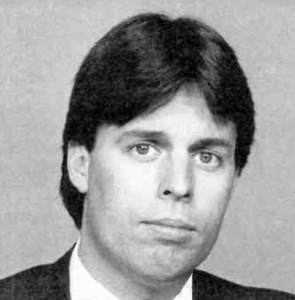
One place where Gillette has been especially consistent is in his music mix. Long before the dance and ballad rushes of 1988, KSFM played a blend of soft pop ballads and harder R &B. Now, with top 40 and urban seeming to diverge again, WHYT still doesn’t get much rockier than INXS’ “New Sensation,” although it will play enough Elton John or Peter Cetera to distinguish itself from a crossover outlet. (Music Director Mark Jackson terms WHYT’s mix “metropolitan” as op- posed to urban.)
Even during this time of Def Leppard mania, Gillette says, WHYT has hit music to choose from. “There was also a lot of DJ Jazzy Jeff this summer. You had 19 Whitney Houston records, and they were all pretty good. Bobby Brown, New Edition, Information Society, and Terence Trent D’Arby all had hits at top 40 radio.
“FM102 might have leaned urban, but it was toward the dance side. In Detroit, you lean more toward Teddy Pendergrass, Keith Sweat, and Freddie Jackson. In Sacramento you could be a little late on Luther Vandross. Here you want to get the album first.”
The other Detroit station with a clear interest in the Vandross album is urban mainstay WJLB, second in the market overall and first among music FMs with a 7.8. Recently WHYT got a lot of local attention when it hired Larry “Doc” Elliot, previously WJLB’s p.m. driver, for late nights, then put local urban veteran Gerald McBride on overnights.
The hirings gave WHYT an all-black air staff from 6 p.m.-6 a.m., which convinced some locals that WHYT would go directly after WJLB’s audience – at least at nights.
“I’ll take anybody’s listeners, to be honest,” Gillette says.
“Larry was No. 1 in afternoon drive for five years. When a well-known talent is available, you snap him up. It had nothing to do with going after WJLB.
“The black /white thing was a coincidence. You hire the best people for the job and hope the chips fall in the right place.” (In Sacramento, FM102 had white, black, Hispanic, Asian, and female staffers.)
Musically, WHYT’s only significant day–parting is with oldies. Currents are more likely to be stress parted – rotated faster in some dayparts than others. “We don’t play J.J. Fad during mid-days, but we do play Anita Baker at night and Bobby Brown’s ‘My Prerogative’ in mornings,” Gillette says. In mornings, Baker comes up more often; later on, Brown does.”
 WHYT relies on an unusual amount of in-house research. “We do our own weekly perceptual studies, weekly call-out research, and un-aided recall. We have phone monitors between 6 a.m. and midnight on weekdays and 8 a.m. and midnight on weekends, so we get an accurate request tabulation.
WHYT relies on an unusual amount of in-house research. “We do our own weekly perceptual studies, weekly call-out research, and un-aided recall. We have phone monitors between 6 a.m. and midnight on weekdays and 8 a.m. and midnight on weekends, so we get an accurate request tabulation.
“We talk to 95% of the local stores – including a lot of one-stops and mom-and-pop outlets. Our weekly research report is 3/4 of an inch thick after the raw data is compiled. We spend all of Monday going through it so we can do the music on Tuesday.”
WHYT began the fall ratings with a Twin Grand Giveaway – $1,000 twice daily. That contest has been expanded to a Triple Grand Giveaway, in which $3,000 is given away daily. WHYT and WCZY have traded places several times before; that race has since been complicated by WDTX, which recently became WDFX and modified its rock-slanted format to a more mainstream top 40 one.
This summer, WCZY fell evenly across various demos. WDFX lost adults but more than doubled in teens. While Gillette is proud of WHYT’s expanded adult audience, he’s still concerned about teen numbers. “Going after 25-54 adults only is the easy way out. It’s always been my philosophy that you want as many bodies over 12 as you can get. The beauty of mass appeal radio is its appeal to the widest spectrum of audience – ethnically and geographically – which is why I’m in this format.” END
_______________
Information credit and news source: Billboard; October 22, 1988
![]()















